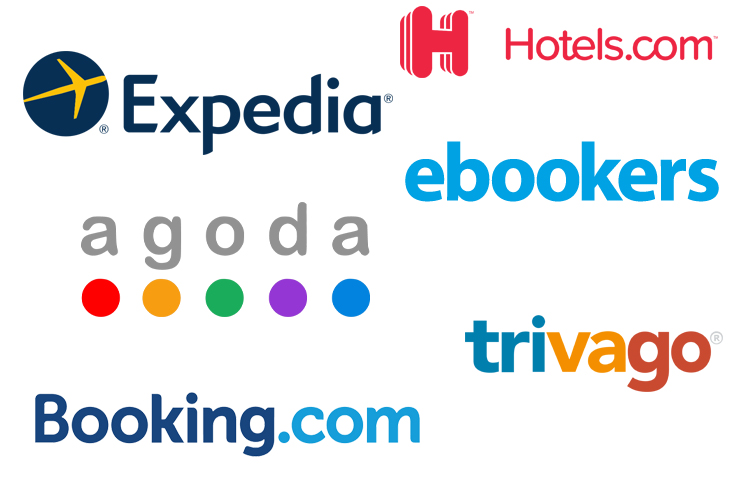
TravelingForMiles.com may receive commission from card issuers. Some or all of the card offers that appear on TravelingForMiles.com are from advertisers and may impact how and where card products appear on the site. TravelingForMiles.com does not include all card companies or all available card offers.
Some links to products and travel providers on this website will earn Traveling For Miles a commission which helps contribute to the running of the site – I’m very grateful to anyone who uses these links but their use is entirely optional. The compensation does not impact how and where products appear on this site and does not impact reviews that are published. For more details please see the advertising disclosure found at the bottom of every page.
One of the best things about using the UK version of an online travel agency’s (OTA) website is that it shows you the actual cost of your stay upfront when searching for hotels . The prices shown include any taxes payable and, usually, any resort fess are reasonably obvious too…but the OTAs are still coming under pressure from the UK’s competition watchdog.
If you search for properties in Waikoloa for two nights (12 -14 July) this is how the Hilton Waikoloa Village appears in the Expedia USA search results.

And here’s how that same search shows the property on the Expedia UK website.

Where the US website shows the nightly price and gives no indication of any taxes or fees that will need to be paid, the UK website shows the total cost (including taxes) for the 2-night stay and shows that there will be a $90 rip-off resort fee to pay as well.
The way the UK forces OTAs to display pricing is a lot more consumer friendly as the costs are far easier to see and it’s pretty obvious from the beginning if you have to factor in a resort fee when comparing properties.
Still, since last summer the UK Competition and Market’s Authority (CMA) has been investigating a number of OTAs following claims that they were making properties and rooms appear more popular than they really were.
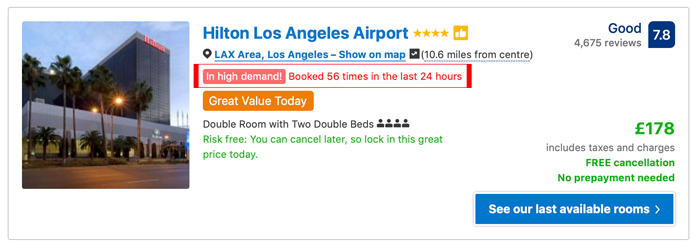
The sites under investigation weren’t named until today but we now know that Expedia, Booking.com, Agoda, Hotels.com, ebookers and trivago have all been under the spotlight…..and the CMA isn’t happy with what it found.
Following a 7-month review the CMA concluded that some of the sites it was investigating were participating in what the Chairman of the CMA described as “misleading sales tactics” and the regulator has now taken action to bring these tactics to an end.
Per the CMA:
Expedia, Booking.com, Agoda, Hotels.com, ebookers and trivago have been the subject of CMA enforcement action due to serious concerns around issues like pressure selling, misleading discount claims, the effect that commission has on how hotels are ordered on sites, and hidden charges.
The Competition and Markets Authority (CMA) took action last year because it was concerned that practices such as giving a false impression of a room’s popularity or not displaying the full cost of a room upfront could mislead people, stop them finding the best deal and potentially break consumer protection law.
The regulator has confirmed that all 6 of the companies it investigated have now agreed to the following:
- Search results will be clearer and it will be more obvious how hotels are being ranked after a customer has entered their search parameters. The sites will now have to tell visitors when search results have been affected by the amount of commission a property pays to the OTA.
- The sites will not give a false impression of how popular a property is or attempt to rush visitors into making a booking based on incomplete information. An example cited here is one where an OTA highlights that other customers are looking at the same hotel but doesn’t point out that the dates being searched are completely different to the one in the visitor’s parameters.

- The sites have committed to not placing sold-out hotels within search results in an attempt to create a feeling of urgency and to rush visitors into a booking.
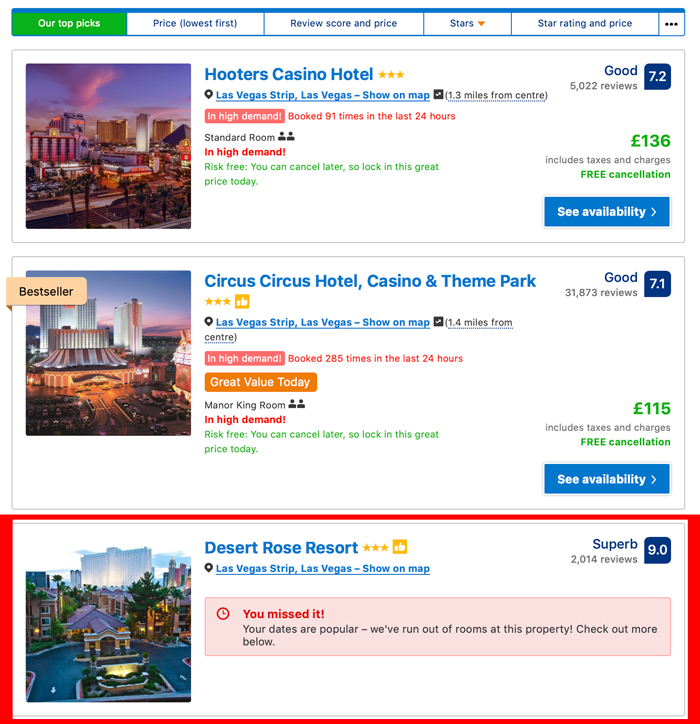
- Discounts will have to be shown more clearly and the only promotions on view should be those that are actually available at the time. (The CMA found sites comparing a higher weekend room rate with a weekday rate or comparing the price of a luxury suite with a standard room).
- The sites will now have to show any booking fees or resort fees within the price being quoted for the room.
The 6 sites have until 1 September 2019 to comply with the CMA’s demands or risk being taken to court and the CMA is now looking to extend these requirements to the whole sector.
Bottom Line
I would have liked the CMA to look into the numerous examples of the bait-and-switch tactic that is prevalent in this sector (in my experience a site called AMOMA is a major culprit) and I would have liked to see all the sites forced to name their parent company in a prominent position on their homepage so visitors know when they’re not really comparing competing sites.
Expedia owns Hotels.com, Travelocity, Orbitz, trivago and eBookers (amongst many others) while Priceline’s parent company owns Booking.com, Agoda and Kayak and I’m pretty sure that most visitors to those sites have absolutely no idea about this.
Still, this result from the CMA is unquestionably good news for UK consumers and goes even further to shine a spotlight on our own websites here in the US where transparency is the last thing on their minds.
We have airlines petitioning congress to allow then to strip out taxes and fees from the fares displayed, we have OTAs and hotel chains that don’t include taxes in the headline prices and that are terrible at showing or explaining resort fees that will have to be paid and we have rental car companies that display headline rates that ultimately have little in common with the final cost of a rental.
The sooner we get a regulator with some backbone here in the US the better – it’s embarrassing how far ahead the UK and Europe are when it comes to consumer protection regulation and oversight in the travel industry.



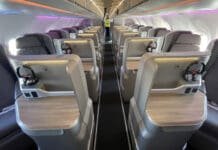




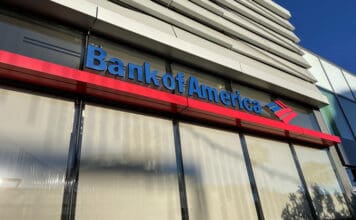
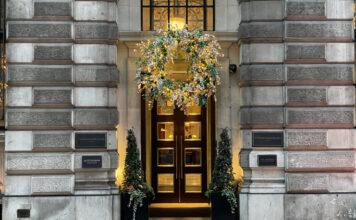
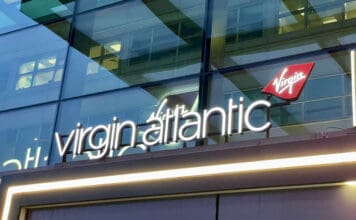


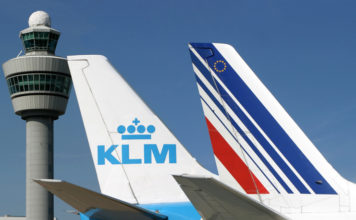



Using the Chase Ultimate Rewards portal, I see this ALL the time. they show sold out hotels along with available ones. They show dubious discounts on the nightly rate. just about everything that was mentioned above.
This is exactly why we need a regulator with some teeth
It’s all a question of attitude towards consumer protection – basically, the US has virtually none. The first fix should be shops and restaurants who are permitted to display prices which exclude tax, local surcharges and other compulsory additions.
The rule of thumb in most advanced economies is that the displayed price is the price that is paid, not a starting point.
I couldn’t agree more – why we still have prices shown without sales tax is shops/stores is beyond me
Not exactly hotel related but some of these sites listed and other that sell airfare. Will have airfare listed at a certain price. But when you put in all your info and CC info and hit the book button. A little pop up will come up and say the price has gone up in the time you were filling out the info. I’ve seen price hikes in this mannor upwards of 250 CAD. Then when you look back up the fares on say kayak.com. The flights will still be listed at the original price. But when you book on a local site from the particular country it will book it no problem. It seems like it happens in countries where the airline websites don’t like taking foreign credit cards. So places like Malaysia, Myanmar, Indonesia, India. So frustrating. I know to just book on the local site so I don’t even bother with these anymore when I’m in countries like that. But how about all the other people that don’t know ? And just pay that extra money ?
I’m going to have to look out for this – the next time this happens to you please take screenshots and then email them over.